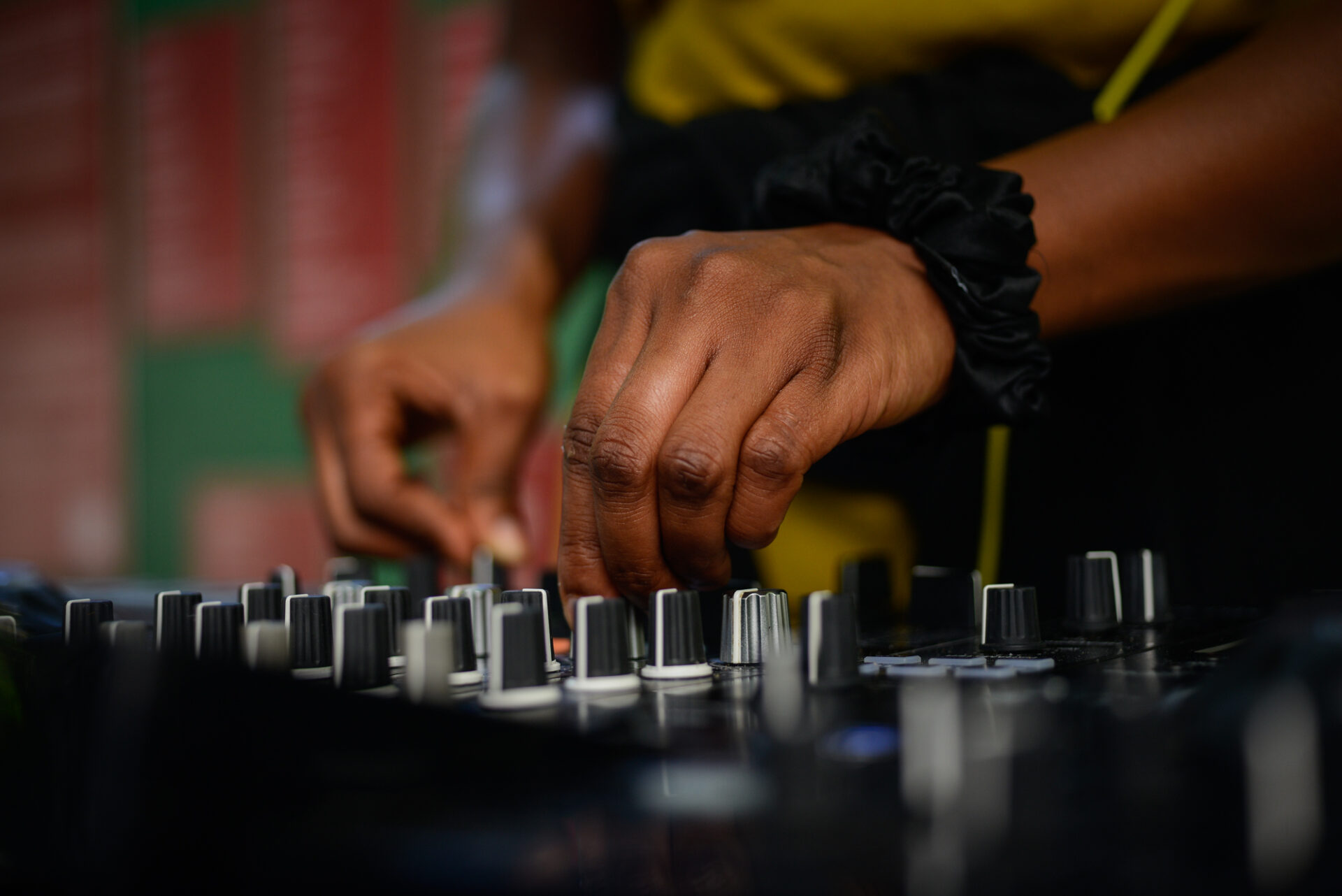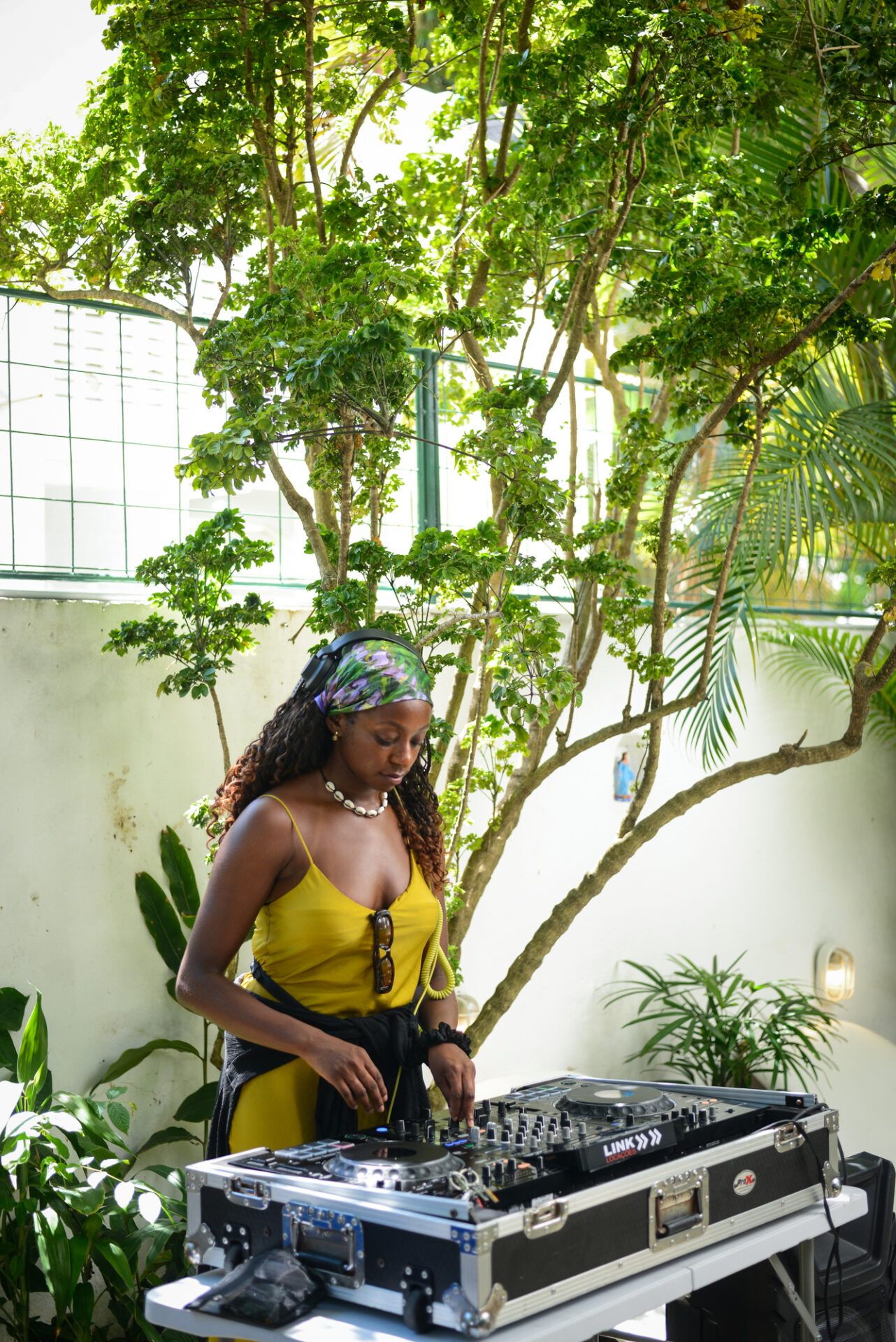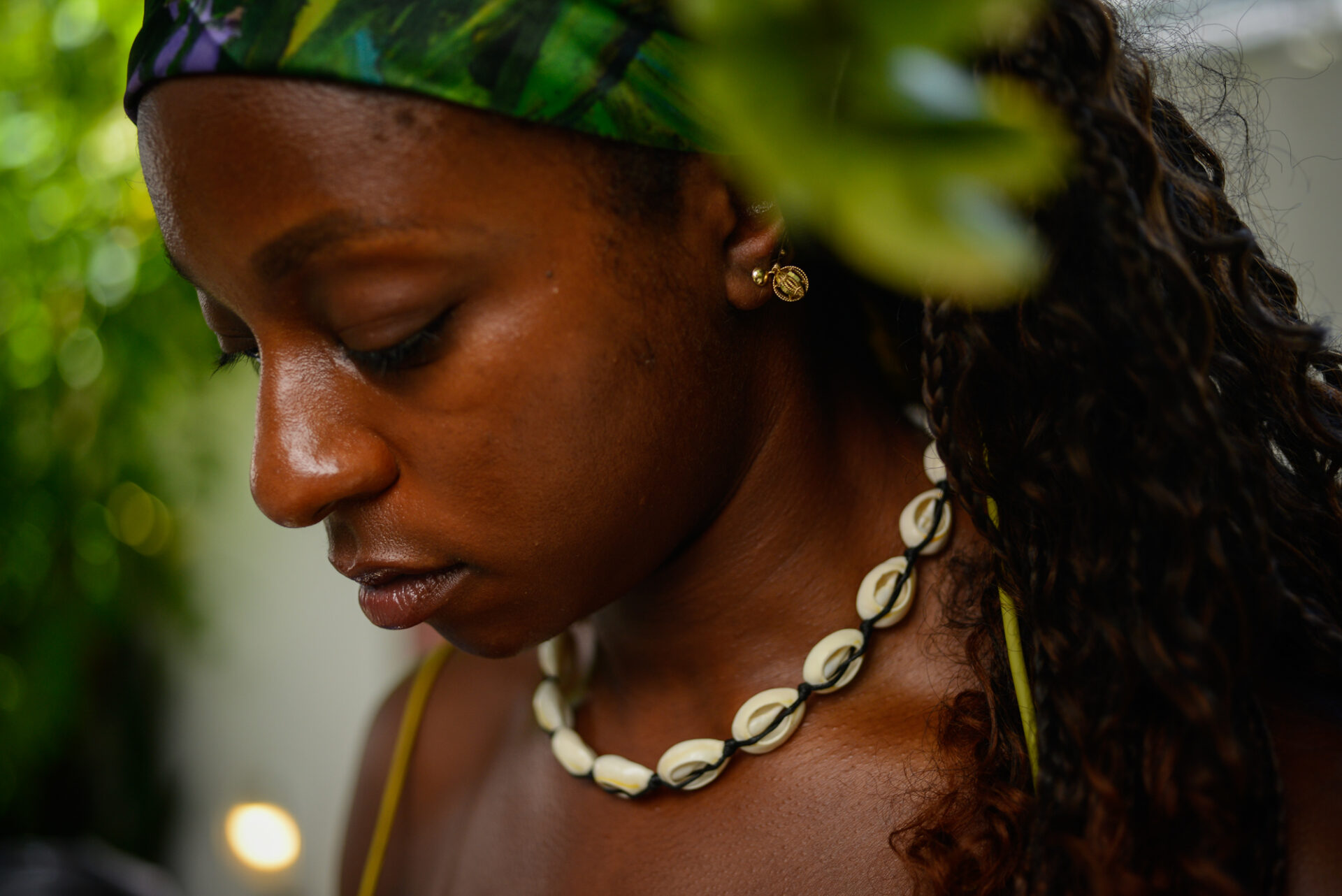

Pivô interviewed British-Nigerian DJ Kikelomo, who participated in the opening program of Pivô Salvador’s 2024 season, and stayed at the artistic residency from February 1st to 10th.
Kikelomo is a DJ, broadcaster, curator, Boiler Room hostess, and co-founder of Oroko Radio. Her eclectic sound is a result of many influences, including her hometown, London, and her Nigerian roots. Her high-energy sets have become known for skillful blending and eclecticism, and her unique sound has become world-famous.
Oroko is a non-profit community radio station that establishes itself as a platform for African and diasporic creative communities, connecting, inspiring, and empowering local, national, and international artists of different disciplines through conversations and collaboration. Oroko Radio seeks to reclaim and re-center the narratives of African and diasporic artistic communities, with a special focus on local perspectives in Accra, as well as cultivating and nurturing relationships with similar projects worldwide. Oroko Radio highlights alternative sounds and thoughts originating from —and influenced by— the African continent. The station provides a stage for local musicians, DJs, researchers, moderators, and content creators: an independent center for self-expression and thought through sound.

Pivô: How was your participation at Pivô Salvador?
Kikelomo: It was amazing to be able to participate in such a lovely event. The event seemed really well curated and had such a wonderful, attracted such a wonderful selection of people that seemed to be from all walks of life, whether it was supporters of the artists or people who were just art enthusiasts, but they all seemed to have this really warm and positive energy about them. Even though I don’t understand Brazilian Portuguese fully, being able to listen in and try to follow the conversation —and some of the talks as well–- was really inspiring.
And it just felt overall really positive! The weather was really nice. Also the environment, the little garden felt really homely and really familiar, with all the plants… So it was a pleasure to be a part of it!
P: You talked about Salvador and its kindness. Can you tell us a little more about it?
K: With regards to the kindness and Salvador in general, I think coming from… or being born and raised primarily in a European environment, my time in Brazil, and specifically Salvador, –because Salvador was the first stop on my trip–, there seems to be this warmth and inherent kindness that I experienced that kind of made it feel almost familiar, or like I was coming to a family, you know, from strangers to new friends that I actually met at Pivô, like Laís Amaral, we’re now friends and we’ve been hanging out in Rio de Janeiro since we’ve both left Salvador. People really made an effort to kind of reach out and say hello and, you know, help where they can. And it seemed to be this type of kindness that didn’t feel transactional.
So sometimes, you know, particularly in the creative industry, people can want to help you, but they’re always looking at what’s in it for them. But I did not get that. I did not feel like that in Salvador at all.
And also specifically for me, as I am Nigerian and have specifically Yoruba heritage, very strong Yoruba heritage, there was also a familiarity in that and seeing the references to my culture in terms of music and dress and, you know, the celebration of Yemanja and all the other Orishas. It was incredible to experience and Salvador just generally seems like a very kind city.

P: What’s your take on Brazilian music? I saw you included amazing Brazilian music in your playlist (which we loved!)
K: Brazilian music is world renowned for its impact in the global music scene. I think what makes it so special is that you can hear all the influences and all the various elements of culture that make Brazil, Brazil, so whether it’s the West African rhythms and claves, like the the various syncopations and stuff, whether it’s indigenous percussion, whether it’s the European influences as well. And I think one of the things that makes it so special is that it’s really participatory. Brazilian music encourages people to participate, particularly with samba and other elements. It just seems very warm and positive and thoughtful and it really, really inspires me.
P: How is your time in Brazil going to be reflected in your research for Oroko Radio? Are you planning any collaboration with any Brazilian artists after this trip?
K: My time in Brazil has definitely inspired me to use Oroko Radio as a vehicle to build stronger connections between cultural practitioners in Brazil and West Africa. I was truly inspired by seeing the strong west African foundations of Brazilian culture, particularly in Bahia, but also understanding how this had fused and evolved into something so distinct, but also widely celebrated. The celebration of indigenous practices has to an extent been demonized in west Africa, and so it was even more inspiring for me to witness.
There are hundreds of shared connections in our history, lineage, culture and music, but these connections have been fragmented by colonialism, physical and knowledge barriers/borders.
What happens when centuries later, we start to bring these worlds together and build bridges between communities once more?
I would love to produce a second body of collaborative work between Brazilian, Nigerian and Ghanaian artists (perhaps as a residency exchange), using a fusion of artistic disciplines such as music, fine art, dance and written word to explore the questions posed.
I’m currently finishing a documentary on the science of what happens in your brain when you listen to music, and why does music bring people together, from a scientific perspective. I would love to also infuse scientific findings in this research too!
I’ve also had the pleasure of connecting with some Brazilian DJs during my time, and have already invited some to contribute regularly to Oroko Radio with radio shows. Stay tuned!
Once again, many thanks to the incredible team at Pivô for their hospitality and inspiration, and I hope we can work together again soon.
—-
To wrap up her season at Pivô Salvador, the DJ curated a 3-hour playlist, loaded with artists from various regions of Africa and England —part of her extensive research for Oroko Radio–- along with Brazilian music that resonated with her during her time in Brazil, such as Arthur Verocai, Os Tincoãs, and Jorge Ben Jor.
The playlist is available on Oroko Radio’s profile. Listen here: https://open.spotify.com/playlist/1bndGmfKAABI2ZXlDmhrBt?si=IXfb2EPASYS_5i1FcnaGCw&pi=u-eCRbkqyQR8uC
Learn more about Oroko Radio here: https://oroko.live/

 Português
Português